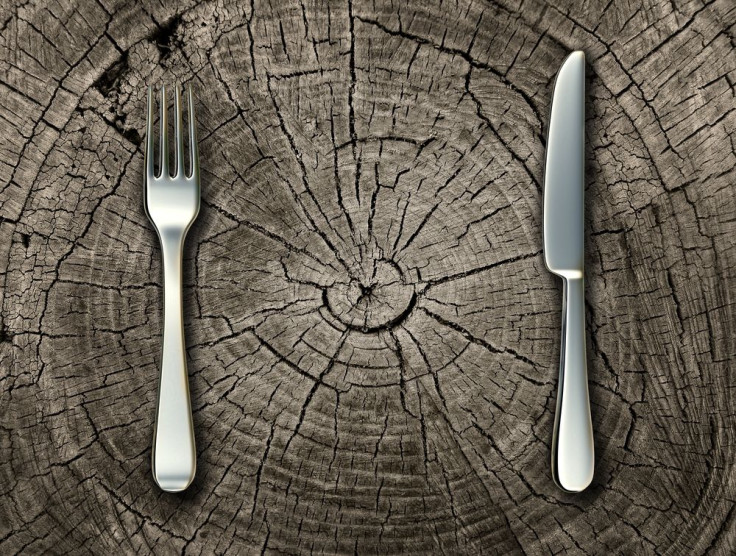Does The Paleo Diet Actually Suppress Hunger? Maybe Not, Scientists Say

Researchers at the Imperial College of London conducted a comparison study to find out if eating like our ancestral cavemen, who had to hunt or gather their food instead of growing it, is the key to weight loss. Their results, which are published in the journal mBio, revealed that the high protein, high fiber diet from long ago doesn’t produce the appetite-suppressing hormones that paleo dieters base their hopes on.
"Understanding how a paleo-like diet impacts the colon's microbiota and the signals those bacteria produce to release hormones that reduce appetite may give us new insight that we can adapt in the modern world," the study’s lead author, Gary Frost said, according to Time.
Paleolithic dieters base their meals on anything that is believed to have once been eaten by cavemen, which means anything hunted or gathered such as meats, fish, nuts, leafy greens, vegetation, fruits, and seeds are all fair game, according to WebMD. This modernly-adapted nutrition plan is based on the presumption that human genetics haven’t changed much since the Paleolithic era about 15,000 years ago. It’s become a controversial topic among dieters and anthropologists alike, who wonder on the actually efficacy of the diet, and the truth behind the theory.
The research team compared the fecal samples of three humans who followed a modern vegetarian diet, to the fecal samples from three gelada baboons, whose long-term diets would be most similar to our ancestors.
The team was surprised by the amount of appetite-suppressing hormones they found in each group’s gut bacteria cultures. They thought they would find the baboon samples indicate a bulky grass diet, and could stave off hunger for longer. Instead they found that the humans, who had much starchier diets, produced the most appetite suppressant metabolites.
"We found that diet does play a major role in affecting gut bacteria and the production of a hormone that suppresses appetite but not in the direction predicted by the ancestral diet hypothesis. Also, bacterial products were correlated with hormone release that were different from those normally thought to play this role," the report said.
The greens our ancestors were eating contained insoluble fibers that the body can’t digest as well, which doesn’t trigger appetite suppressants but researchers believe could be signaling other kinds of fiber. Soluble fibers on the other hand, release compounds that signal to your brain that the body has had enough and is full.
The test-tube study’s results show the appetite to be “flawed” because plant-based diets just won’t reduce appetite as well, which Frost said makes sense because grasses aren’t high enough in nutrients or energy. Our ancestors would have had to graze on grass all day in order to get the appetite-suppressing, full-feeling effect that modern dieters are hoping for today.
The modern paleo diets have much more variety than the cavemen would’ve been exposed to, which means a healthier helping of soluble fiber can be included. Don’t give up on your paleo ways, the fruit, nuts, cucumbers, carrots, and lean meats still stand on healthy grounds for weight management.
Source: Frost G, Walton G, Swann J, et al. Impacts of Plant-Based Foods in Ancestral Hominin Diets on the Metabolism and Function of Gut Microbiota In Vitro. mBio. 2014.



























